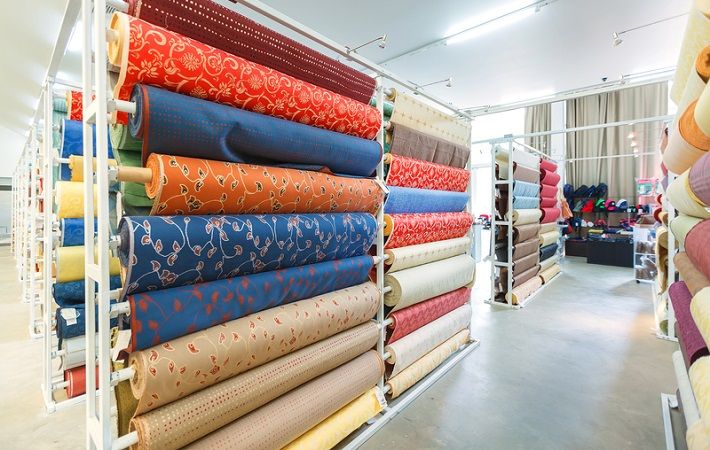
Fabrics trade is slowing down because of the difficulty to accommodate proposed GST hike, Purusottam Parmanandka, joint managing director of Tiruppur-based trading company Kesharinandan Knit Fabrics Private Limited told Fibre2Fashion. He said that the cloth manufacturers and traders are more worried, as they are clueless about how to adjust the tax increase in product prices.
Cotton yarn and fabric trade has come down not only in Tiruppur, but also in many other markets of southern India.
Besides the GST hike, cloth production is also adversely affected due to poor demand from the downstream industry. Slow trading activities of fabrics is also leading to sluggish demand for cotton and man-made yarn. In Tiruppur, 20 count carded cotton yarn is being sold at ₹280-285, 25 count carded yarn at ₹290-295 and 30 count carded yarn at ₹300-305 per kg.
The panic among textile and garment manufacturers due to GST hike is also visible in northern India. SK Shrivastava of Delhi-based Neha Fibre says that normally the trade in the yarn market remains limited in the last fortnight of December. But, this year, trading activities slowed down drastically due to the proposed GST hike. “Yarn buying also remained weak due to muted demand for fabric.”
GST rate for woven fabrics; sewing thread of man-made filaments, whether or not put up for retail sale; synthetic filament yarn (other than sewing thread), not put up for retail sale, including synthetic monofilament of less than 67 decitex; artificial filament yarn (other than sewing thread), not put up for retail sale, including artificial monofilament of less than 67 decitex; knotted netting of twine, cordage or rope and other made up nets, of textile materials; pile fabrics, including long pile fabrics and terry fabrics, knitted or crocheted; blankets and travelling rugs; bed linen, table linen, toilet linen and kitchen linen; curtains (including drapes) and interior blinds; curtain or bed valances; sacks and bags, of a kind used for the packing of goods; tarpaulins, awnings and sunblinds; tents; sails for boats, sailboards or landcraft; camping goods; sets, consisting of woven fabric and yarn, whether or not with accessories, for making up into rugs, tapestries, embroidered tablecloths or serviettes, or similar textile articles, put up in packings for retail sale, etc has been increased from 5 per cent to 12 per cent. However, GST rates are unchanged on cotton and cotton yarn. But the GST rate on article of apparel of any value has been increased to 12 per cent. Earlier, the GST rate was 5 per cent for sale value up to ₹1,000 per piece.
Businesses, specifically MSME manufacturers and merchants, feel that they cannot survive in the current scenario. They have requested the government to maintain status quo on the GST on textiles, including sarees, at 5 per cent. A delegation of Punjab textile merchants met Som Parkash, union minister of state for commerce and industry, in Amritsar recently on the issue. The sole agenda was the repercussions on increase in the GST from 5 to 12 per cent on textiles, including sarees, from January 1, 2022.
Fibre2Fashion News Desk (RKS)